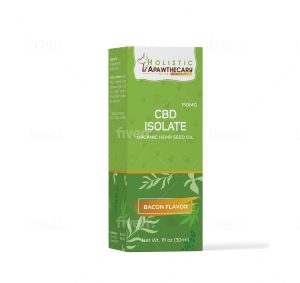 Pets are an important part of many households, but did you know your furry friends also have a unique microbiome that can help keep them healthy? Recent studies have shown that the microbiome in cats and dogs is similar to humans, meaning it plays an important role in maintaining overall animal health. From gut bacteria to environmental factors, here’s what you need to know about pet microbiomes.
Pets are an important part of many households, but did you know your furry friends also have a unique microbiome that can help keep them healthy? Recent studies have shown that the microbiome in cats and dogs is similar to humans, meaning it plays an important role in maintaining overall animal health. From gut bacteria to environmental factors, here’s what you need to know about pet microbiomes.
What is a dog microbiome?
A dog microbiome is made up of beneficial bacteria that lives in your pet’s digestive system. It helps to break down the food your pet eats and absorb the nutrients it needs to stay healthy. The microbiome can also help protect your dog from illness by controlling or suppressing any potentially harmful bacteria in its environment. In addition, these beneficial bacteria can act as natural defenders against infections, helping to keep your dog fit and active throughout its lifetime.
What are the symptoms of a pet microbiome in trouble?
A microbiome imbalance can manifest in a variety of ways, but some of the most common symptoms in dogs include digestive issues such as diarrhea, constipation, gas or vomiting. Other signs to look for are excessive licking or scratching of the skin, fatigue, and weight loss. Your pet may also show signs of an upset stomach such as abdominal pain or decreased appetite. If you suspect your dog’s microbiome is out of balance, you should seek veterinary advice to get it back on track. If you’ve ever had a stomach issue yourself, you’re likely familiar with these symptoms.
Feeding Strategies for Dogs to Improve Microbiome
Creating a healthy microbiome for your dog is not too difficult. The first step is to ensure that you are feeding your pet a balanced, high-quality diet packed with high quality protein and minimal processing. This helps to create an environment in the gut where beneficial bacteria can thrive. Beneficial bacteria help with proper digestion and absorption of essential nutrients and help with elimination of non-essential nutrients which is part of the detoxification process.
You should also make sure your pup gets enough exercise, as this helps to keep their microbiome in balance. Exercise reduces stress, which increases the activity of the parasympathetic nervous system. This is important for digestion because it is the rest and relax part of the digestive process.
Finally, supplementing with probiotics can help maintain a healthy balance of microbes in your pet’s system – particularly after antibiotics or illness. Our Holistic Apawthecary probiotics offer simple ways to give your dog a good dose of healthy probiotics (we ship!). Dr. Carlson, owner of Riverside Animal Clinic & Holistic Center offers other probiotics such as Purina Fortiflora and Synacore by VanBeek. Each option has different bacteria and yeasts to balance your dog’s stomach.
Other Ways to Fix a Static Microbiome in Dogs
Fermented Foods – Yes, our patients eat saurkraut!
No Processed Foods – Now is a great time to switch to a raw diet
Don’t Stress Your Pet- Keep your emotions in check around animals. They pick up on them and are stressed by them. How do we know? Your Custom Holistic Test at Riverside runs emotional screenings in three parts on each animal.
CBD Oil is a great way to help in food transition from a processed to a fresh and raw, natural diet. Try our Holistic Apawthecary brand of CBD Isolate, broad spectrum carried in organic hemp oil was developed by Dr. Carlson for this and other health symptoms involving emotions, nerve and muscles.
 Additionally , there are dozens of supplements we can help you with when it comes to dog microbiomes. From kefir to goat’s milk to fermented stock. The options are endless to help support your pet. Best advice would be to choose and start with one item before adding others.
Additionally , there are dozens of supplements we can help you with when it comes to dog microbiomes. From kefir to goat’s milk to fermented stock. The options are endless to help support your pet. Best advice would be to choose and start with one item before adding others.
Can you Test for Dog Microbiome Problems?
Yes! You can do that now but we haven’t had a lot of experience. One company that pops up frequently on our radar is Doggy Biome.
